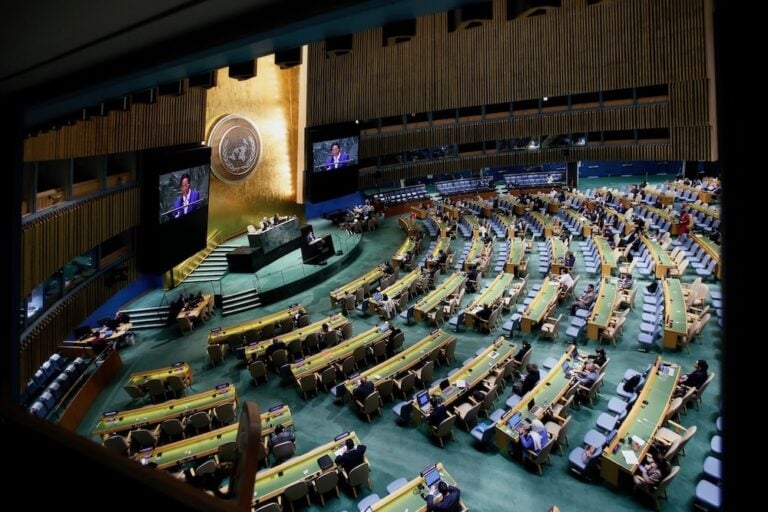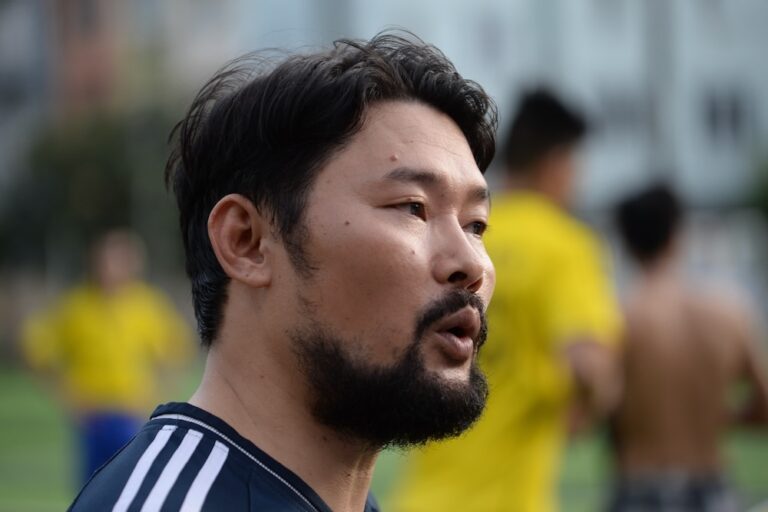(CPJ/IFEX) – In a 5 March 2003 letter to President Tran Duc Luong, CPJ expressed grave concern about the safety of 73-year-old Tran Dung Tien, who was arrested on 22 January 2003, after writing an open letter calling for the release of imprisoned activists Pham Que Duong and Tran Khue. His current whereabouts are unknown, […]
(CPJ/IFEX) – In a 5 March 2003 letter to President Tran Duc Luong, CPJ expressed grave concern about the safety of 73-year-old Tran Dung Tien, who was arrested on 22 January 2003, after writing an open letter calling for the release of imprisoned activists Pham Que Duong and Tran Khue. His current whereabouts are unknown, and given his advanced age, CPJ is extremely worried about his health.
At about 10:30 a.m. (local time) on 22 January, Tien was arrested at a photocopy shop in the capital, Hanoi, according to his wife, Duong Kim Hop. That same day, police confiscated two boxes of documents from their home. Despite repeated inquiries from Hop, police have not provided any information about where Tien is being held or if he has been formally charged with any crime.
On 20 January, Tien had distributed an open letter addressed to government leaders and the media calling for the release of imprisoned democracy activists Pham Que Duong and Tran Khue, who were arrested in late December 2002 after meeting at Khue’s home in Ho Chi Minh City. Tran Khue, who had been under house arrest since October 2001, has written a number of essays criticizing government policies and calling for political reform (see IFEX alerts of 13 February and 3 January 2003, 4 July and 14 March 2002 and others). Government officials have stated that both Duong and Khue will be tried but have not clarified when or on what charges.
In his 20 January letter, Tien wrote, “I sincerely wish that patriots, those enamored of rights and justice, intellectuals, and former comrades-in-arms, including truly revolutionary military men, will all raise their voices to demand … that Colonel Pham Que Duong and scholar Tran Khue be released at once. To remain silent is to be irresponsible, for it amounts to accepting the continuation of crimes and tyranny.”
Because of the Vietnamese government’s extraordinarily tight control over news and information circulated within the country, CPJ classifies open letters, pamphlets, and other forms of political speech in Vietnam as journalism.
Tien is a former soldier in the Vietnamese army who served as a bodyguard to revolutionary leader Ho Chi Minh in the 1940s. In recent years, he has written a number of open letters and essays calling for political reform and analyzing the failures of the communist leadership. On 8 November 2002, Tien was briefly detained after protesting the trial of Internet essayist Le Chi Quang, who was sentenced to four years in prison for his writings (see alerts of 8 November 2002).
During the last year, several Vietnamese writers have been harassed, placed under tight surveillance, and imprisoned for publishing independent views – part of a broad crackdown aimed at silencing dissent.
Recommended Action
Send appeals to the president:
– reminding him that the right to freedom of expression is guaranteed both by the Vietnamese Constitution and by the United Nations International Covenant on Civil and Political Rights, to which Vietnam is a signatory
– condemning his government’s detention of Tien and calling for his immediate and unconditional release
Appeals To
His Excellency Tran Duc Luong
President, Socialist Republic of Vietnam
C/o Ministry of Foreign Affairs
Hanoi, Vietnam
Fax: +84 4 823 1872
Please copy appeals to the source if possible.


